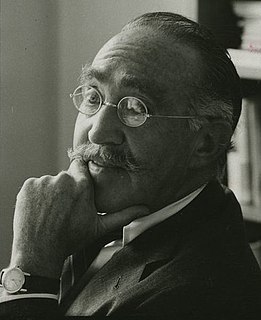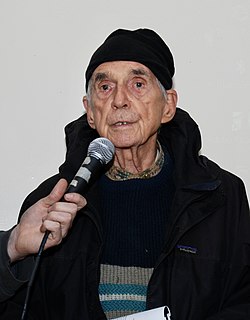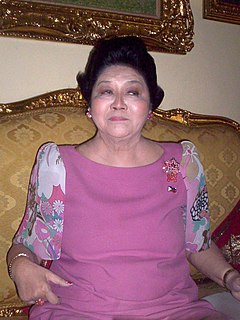A Quote by S. J. Perelman
Where would the Rockefellers be today if old John D. had gone on selling short-weight kerosene ... to widows and orphans instead of wisely deciding to mulct the whole country.
Related Quotes
The sponsors of war closely resemble the weapons they create. And smart bombs, depleted uranium, land mines, rockets and tanks, rather than protect 'widows and orphans and strangers at the gate', are designed precisely to create 'widows and orphans', to transform strangers into enemies and enemies into corpses.
"What would people say about you when you're gone?" That to me was a very important question. I thought about that for a couple of years and said, "What people say about you when you're gone doesn't matter. You're gone." What really matters is, "What do you say about yourself in the here and now? Are you proud of what you're doing?" If you had a short lease and it ended today, or it ends tomorrow, what would you wish you would have done? You better do it.
He had drawn many a thousand of these rations in prisons and camps, and though he'd never had an opportunity to weight them on scales, and although, being a man of timid nature, he knew no way of standing up for his rights, he, like every other prisoner, had discovered long ago that honest weight was never to be found in the bread-cutting. There was short weight in every ration. The only point was how short. So every day you took a look to soothe your soul - today, maybe, they haven't snitched any.
When I went to Afghanistan in 2003, I walked into a war zone. Entire neighborhoods had been demolished. There were an overwhelming number of widows and orphans and people who had been physically and emotionally damaged; every 10-year-old kid on the street knew how to dismantle a Kalashnikov in under a minute. I would flip through math textbooks intended for third grade, fourth grade, and they would include word problems such as, "If you have 100 grenades and 20 mujahideen, how many grenades per mujahideen do you get?" War has infiltrated every facet of life.
An old market had stood there until I'd been about six years old, when the authorities had renamed it the Olde Market, destroyed it, and built a new market devoted to selling T-shirts and other objects with pictures of the old market. Meanwhile, the people who had operated the little stalls in the old market had gone elsewhere and set up a thing on the edge of town that was now called the New Market even though it was actually the old market.
The question is not what anybody deserves. The question is who is to take on the God-like role of deciding what everybody else deserves. You can talk about 'social justice' all you want. But what death taxes boil down to is letting politicians take money from widows and orphans to pay for goodies that they will hand out to others, in order to buy votes to get re-elected. That is not social justice or any other kind of justice.
Go back to the Bible, the Old Testament. I mean there were people who we would call intelectuals, there, they were called prophets, but they were basically intelectuals: they were people who were doing critical, geopolitical analysis, talking about the decisions of the king were going to lead to destruction; condemning inmorality, calling for justice for widows and orphans. What we would call dissident intelectuals. Were they nicely treated? No, they were driven into the desert, they were imprisoned, they were denounced. They were intelectuals who conformed.
Network marketing is based purely on relationship selling, which is the state of the art in selling today. Small and large companies throughout the country and the world are realizing that individuals selling to their friends and associates is the future of sales, because the critical element in buying is trust.






































